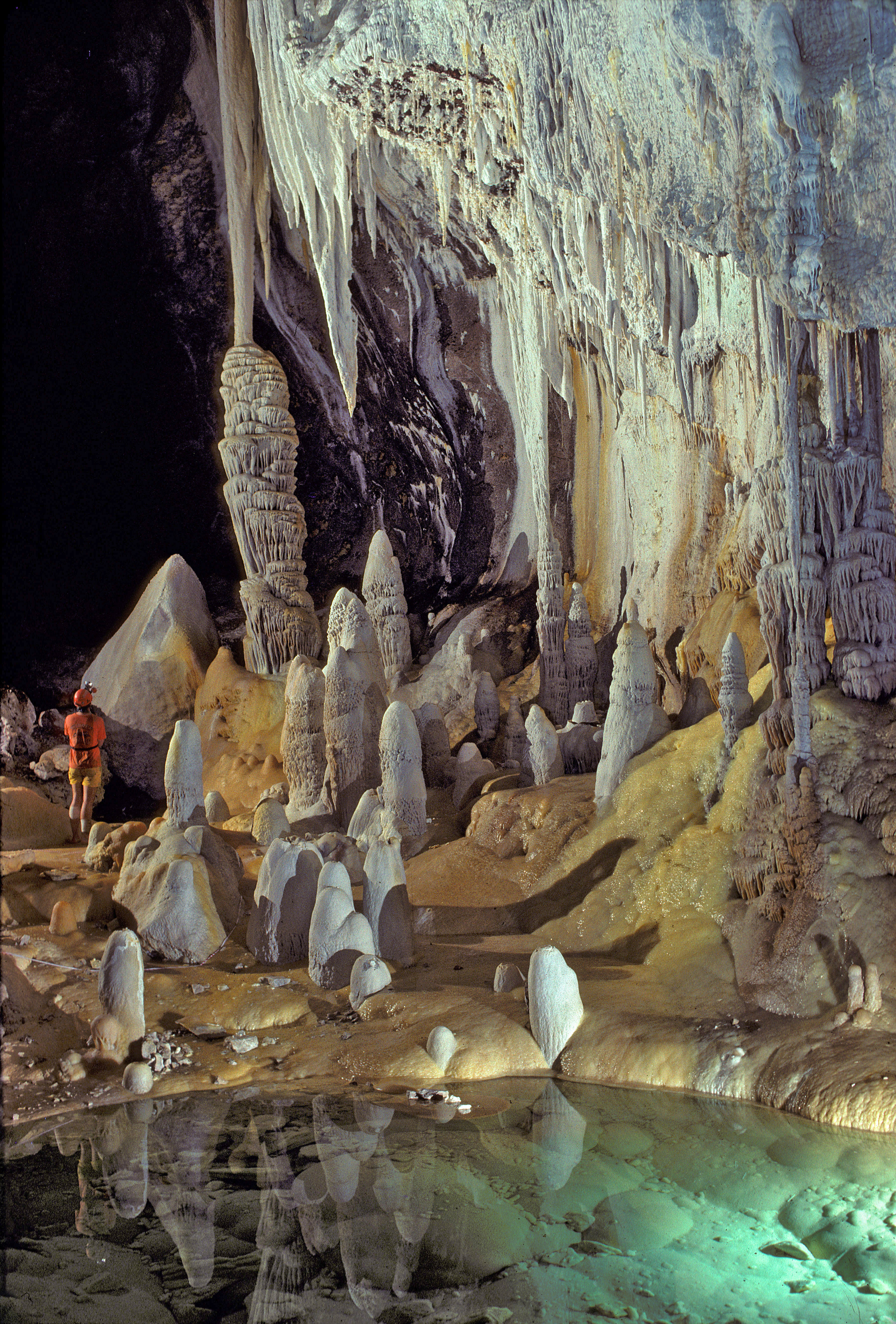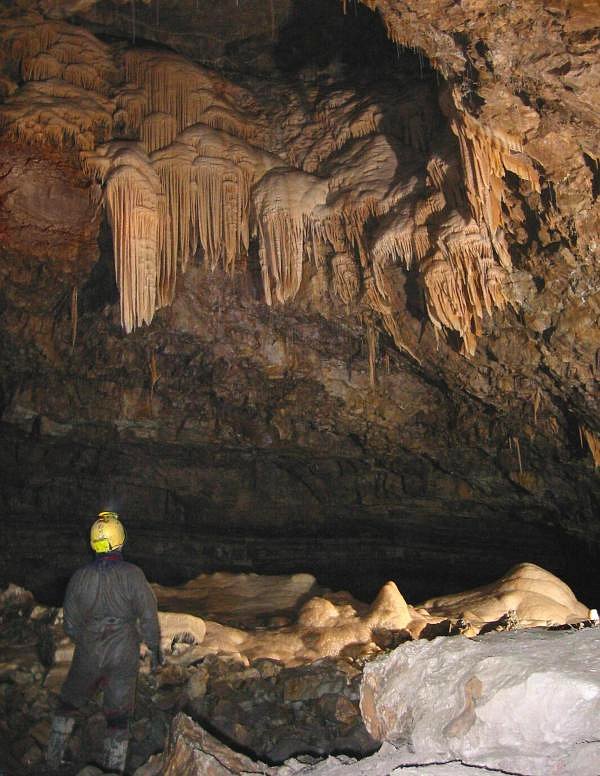|
Amanchor Cave
Amanchor Cave is located in the Etiti community of Edda, Afikpo South, in Enugu State of Nigeria. The cave is 4 km/2.5 miles in length. History According to Chief Boniface Agwuibe, the community head, said the cave was discovered by a hunter, Ofia Ugo (or Uko), who named it ''Ogba Amanchor''. Passageways The Amanchor cave has a natural step-like entrance that is supported by a wooden ladder built by the community. The cave's entrance is 6 meters high. The cave features three tunnels, the second of which is known as the "window," leading to the cave's ground level. The cave floor may be seen from the "window." The cave's third entry is known as the "door." On the last Orie (one of the four market days in the Igbo cultural calendar) of the year, in December December is the twelfth and final month of the year in the Julian and Gregorian calendars and is also the last of seven months to have a length of 31 days. December got its name from the Latin word ''decem'' ... [...More Info...] [...Related Items...] OR: [Wikipedia] [Google] [Baidu] |
Afikpo South
Eddaland administratively designated by Nigeria as Afikpo South covers an entire local government area in Ebonyi State, Nigeria. Locations Eddaland is composed of many autonomous communities and towns which include: Ebunwana Edda, Nguzu Edda, Ekoli Edda, Owutu Edda, Amangwu Edda, Oso Edda, Etiti Edda, Ogbu Edda etc. The local area headquarters Afikpo South, being the Nigerian government designated administrative name for Eddaland is at Nguzu. The names of Edda towns often have Edda at their endings as an addendum designating their membership of the Edda cultural common wealth and community of shared values. Each of the autonomous communities of Eddaland had been existing as small city states with each having its own monarch before Nigeria was carved up by British colonialists. These communities made up of about 72 villages today had been functioning as a confederation of small city states bounded by common heritage until 1867. That was when British colonialists finally enveloped E ... [...More Info...] [...Related Items...] OR: [Wikipedia] [Google] [Baidu] |
Enugu State
Enugu State ( ig, Ȯra Enugu) is a state in the South-East geopolitical zone of Nigeria, bordered to the north by the states of Benue and Kogi, Ebonyi State to the east and southeast, Abia State to the south, and Anambra State to the west. The state takes its name from its capital and largest city, Enugu. Of the 36 states, Enugu is the 29th largest in area and 22nd most populous with an estimated population of over 4.4 million as of 2016. Geographically, the state is divided between the Niger Delta swamp forests in the far south and the drier Guinean forest–savanna mosaic with some savanna in the rest of the state. Other important geographical features are the Udi-Nsukka Plateau and Ekulu River, which flows through the city of Enugu. Modern-day Enugu State has been inhabited for years by various ethnic groups, primarily the Igbo people with minorities of Idoma and Igala peoples in Etteh Uno. In the pre-colonial period, what is now Enugu State was a part of the med ... [...More Info...] [...Related Items...] OR: [Wikipedia] [Google] [Baidu] |
Nigeria
Nigeria ( ), , ig, Naìjíríyà, yo, Nàìjíríà, pcm, Naijá , ff, Naajeeriya, kcg, Naijeriya officially the Federal Republic of Nigeria, is a country in West Africa. It is situated between the Sahel to the north and the Gulf of Guinea to the south in the Atlantic Ocean. It covers an area of , and with a population of over 225 million, it is the most populous country in Africa, and the world's sixth-most populous country. Nigeria borders Niger in the north, Chad in the northeast, Cameroon in the east, and Benin in the west. Nigeria is a federal republic comprising of 36 states and the Federal Capital Territory, where the capital, Abuja, is located. The largest city in Nigeria is Lagos, one of the largest metropolitan areas in the world and the second-largest in Africa. Nigeria has been home to several indigenous pre-colonial states and kingdoms since the second millennium BC, with the Nok civilization in the 15th century BC, marking the first ... [...More Info...] [...Related Items...] OR: [Wikipedia] [Google] [Baidu] |
December
December is the twelfth and final month of the year in the Julian and Gregorian calendars and is also the last of seven months to have a length of 31 days. December got its name from the Latin word ''decem'' (meaning ten) because it was originally the tenth month of the year in the calendar of Romulus which began in March. The winter days following December were not included as part of any month. Later, the months of January and February were created out of the monthless period and added to the beginning of the calendar, but December retained its name.Macrobius, ''Saturnalia'', tr. Percival Vaughan Davies (New York: Columbia University Press, 1969), book I, chapters 12–13, pp. 89–95. In Ancient Rome, as one of the four Agonalia, this day in honour of Sol Indiges was held on December 11, as was Septimontium. Dies natalis (birthday) was held at the temple of Tellus on December 13, Consualia was held on December 15, Saturnalia was held December 17–23, Opiconsivia was ... [...More Info...] [...Related Items...] OR: [Wikipedia] [Google] [Baidu] |
Ebonyi State
Ebonyi State ( ig, Ȯra Ebonyi) is a state in the South-East geopolitical zone of Nigeria, bordered to the north and northeast by Benue State, Enugu State to the west, Cross River State to the east and southeast, and Abia State to the southwest. Named for the Abonyi (Aboine) River—a large part of which is in the state's south—Ebonyi State was formed from parts of Abia and Enugu state in 1996 and has its capital as Abakaliki. One of the smallest states of Nigeria, Ebonyi is the 33rd largest in area and 29th most populous with an estimated population of nearly 2.9 million as of 2016. Geographically, the state is divided between the Cross–Niger transition forests in the far south and the drier Guinean forest–savanna mosaic in the rest of the state. The other important geographical features are the Cross River and its tributary, the River Aloma, which flow along Ebonyi's southeastern and eastern borders, respectively; while fellow Cross River tributaries, the Abonyi (Ab ... [...More Info...] [...Related Items...] OR: [Wikipedia] [Google] [Baidu] |
Caves By Country
A cave or cavern is a natural void in the ground, specifically a space large enough for a human to enter. Caves often form by the weathering of rock and often extend deep underground. The word ''cave'' can refer to smaller openings such as sea caves, rock shelters, and grottos, that extend a relatively short distance into the rock and they are called ''exogene'' caves. Caves which extend further underground than the opening is wide are called ''endogene'' caves. Speleology is the science of exploration and study of all aspects of caves and the cave environment. Visiting or exploring caves for recreation may be called ''caving'', ''potholing'', or ''spelunking''. Formation types The formation and development of caves is known as ''speleogenesis''; it can occur over the course of millions of years. Caves can range widely in size, and are formed by various geological processes. These may involve a combination of chemical processes, erosion by water, tectonic forces, microorgani ... [...More Info...] [...Related Items...] OR: [Wikipedia] [Google] [Baidu] |
Caves By Continent
A cave or cavern is a natural void in the ground, specifically a space large enough for a human to enter. Caves often form by the weathering of rock and often extend deep underground. The word ''cave'' can refer to smaller openings such as sea caves, rock shelters, and grottos, that extend a relatively short distance into the rock and they are called ''exogene'' caves. Caves which extend further underground than the opening is wide are called ''endogene'' caves. Speleology is the science of exploration and study of all aspects of caves and the cave environment. Visiting or exploring caves for recreation may be called ''caving'', ''potholing'', or ''spelunking''. Formation types The formation and development of caves is known as '' speleogenesis''; it can occur over the course of millions of years. Caves can range widely in size, and are formed by various geological processes. These may involve a combination of chemical processes, erosion by water, tectonic forces, microorgani ... [...More Info...] [...Related Items...] OR: [Wikipedia] [Google] [Baidu] |



